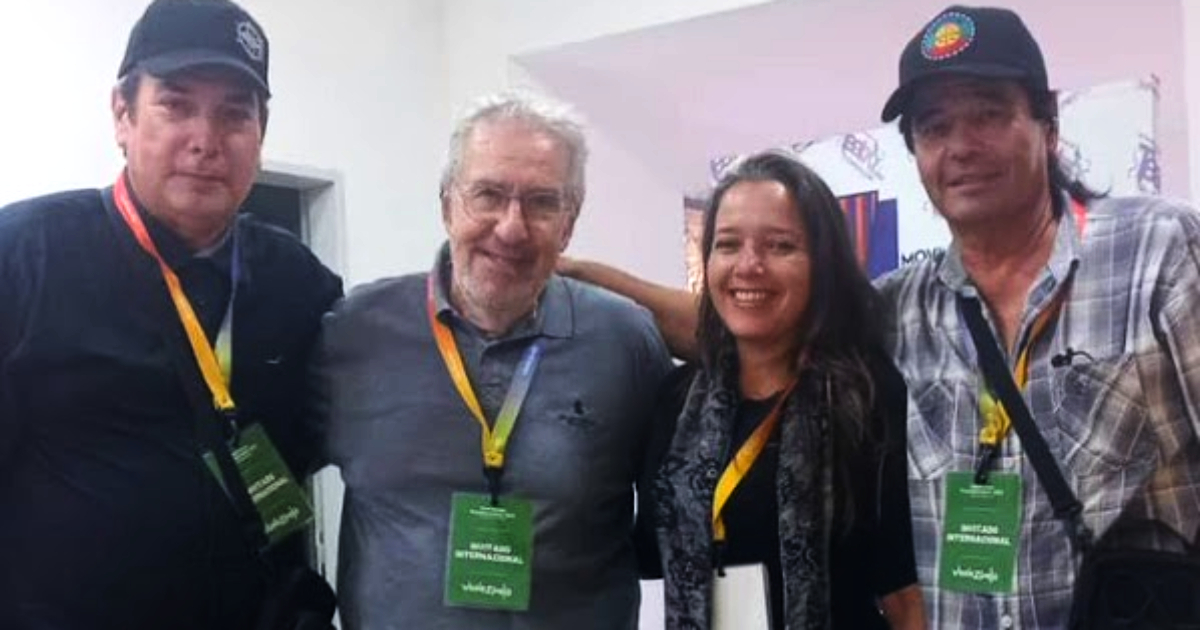
Related videos:
With four days left until the presidential elections in Venezuela, the Cuban regime boasts of sending several of its henchmen to that country as a gesture of support for its allied dictator, Nicolás Maduro.
Amid a muted unrest over the outcome of the polls, Havana watches with concern the growing support of millions of Venezuelans for the candidacy led by Edmundo González Urrutia and María Corina Machado.
Beyond the interference in Venezuela by agents of the Cuban G2, the Revolutionary Armed Forces (FAR), and the Ministry of the Interior (MININT)—as reported by the Organization of American States (OAS) and other international and non-governmental organizations—it's important to remember that Cuban companies and advisors were hired by Maduro to develop the electronic identity card and the digital systems for participation and scrutiny in Venezuelan elections.
With control over the electoral system in its hands, the Cuban regime serves as a guarantee for chavismo, which, like Havana, is eager to remain in power. However, beyond this interference in the internal affairs of Venezuela, the Cuban regime proudly sends notable State Security agents like Raúl Antonio Capote, who attends the Venezuelan elections as an "international guest."
Abel Prieto Jiménez, director of the Casa de las Américas, celebrated his presence in Caracas with a tweet in which he greeted "our troops" and stated that "they will never be able to take victory away from the people of Bolívar and Chávez."
The photo of Capote alongside Argentine sociologist and supporter of Latin America's "leftist dictatorships," Atilio Borón, was sent by Argentine journalist based in Cuba, Graciela Ramírez, another fervent activist for the expansion of socialism in the region.
Paradoxically, Prieto Jiménez shared the image in his tweet with the eye-catching hashtag: #HandsOffVenezuela.
In 2007, companies from the Cuban regime signed an agreement with Bolivarian authorities worth 172 million dollars to develop the Venezuelan electronic ID project. The Cuban company Albet Ingeniería y Sistemas sold the programs produced at the University of Computer Sciences in Havana.
The agreement not only placed Venezuelan data in Cuban hands but also opened the door for state companies from the island to participate as intermediaries and suppliers in the identity document market with chips. It also provided the regime with an ideal opportunity to expand its strategic horizons.
"These companies are part of a Cuban strategy to extend its intelligence networks in the region. They are actually a front for the G2, allowing them to control the systems for issuing identity documents, which enables them to grant these documents to anyone," stated Anthony Daquin in 2013, a former advisor to the Venezuelan Ministry of Interior, who was involved in the selection processes for electronic ID and passport providers.
However, in May 2018, the Cuban writer and political scientist Carlos Alberto Montaner dismissed the involvement of "Cuba's hairy hand from a sinister computing center established on the Island" in those elections.
"It was simpler, closer, and there were good Venezuelan technicians in charge of the dirty business. Once the voting was officially concluded, Smartmatic, the electronic organizer of the elections funded by chavismo, would obtain the actual figures and calculate the extent of the fraud needed to 'win.' At that moment, virtual votes were fabricated, spread across the electoral geography, and added to the final tally. If the opposition demanded a manual recount, their requests were either delayed or denied, as happened to Henrique Capriles in 2013," he explained.
According to Montaner, "this was known with complete certainty in August 2017, when Antonio Mugica, president of Smartmatic, now a reputable company based in London that is attempting to distance itself from its compromising Chavista past, revealed that the elections to choose the illegal National Constituent Assembly had been bolstered by a million false virtual votes."
Recently, the president of Brazil, Luiz Inácio Lula da Silva, revealed that he was frightened upon hearing Maduro say that if he loses the elections next Sunday in Venezuela, there will be "a bloodbath" in his country. "I was scared by that statement," Lula told the EFE agency.
The Brazilian leader mentioned that he spoke twice with Maduro and warned him that "if he wants to help resolve Venezuela's growth issue and the return of those who left, he must respect the democratic process."
Lula stated that, in a democracy, "the one who loses faces a shower of votes, not a shower of blood," and that "Maduro must learn that when one wins, they stay, and when they lose, they leave and prepare for other elections."
Filed under: